📚 The Almanack of Naval Ravikant by Eric Jorgenson

Head to www.navalmanack.com to download this book for free. There's value in every word, summarizing this book may ultimately be an injustice.
🎯 Read This Book If
You could use inspiration and insight to help you figure out life, make smarter decisions, and build the life you dream of.
🔑 Key Points
- Building wealth isn't about luck, it's a skill that anyone can learn and work towards.
- Seek happiness through finding internal peace and fulfillment, rather than external success or status.
- Self development is a life long process: think long term, have an open mind, and constantly allow yourself to improve.
🤔 Main Ideas
Getting rich is not just about luck; happiness is not just a trait we are born with. They might seem out of reach, but building wealth and being happy are skills we can learn.
Naval Ravikant is an entrepreneur, philosopher, and investor who has captivated the world with his principles for building wealth and creating long-term happiness.
This is a collection of Naval's wisdom and experience from the last ten years, shared as a curation of his most insightful interviews and poignant reflections. Through Naval's own words, you will learn how to walk your own unique path toward a happier, wealthier life.
Timeline of Naval Ravikant
→ 1974 - Born in Delhi, India
→ 1985 - Moved to Queens, NY
→ 1989 - Attended Stuyvesant High School
→ 1995 - Graduated Dartmouth (computer science and economics)
→ 1999 - Founder/CEO of Epinions
→ 2001 - Venture Partner at August Capital
→ 2003 - Founder of Vast.com
→ 2005 - Called “Radioactive Mud” in Silicon Valley
→ 2007 - Founded Hit Forge
→ 2007 - Launched VentureHacks blog
→ 2010 - Launched AngelList
→ 2010 - Invested in Uber
→ 2012 - Lobbied Congress to get the JOBS Act passed
→ 2018 - Is named “Angel Investor of the Year”
Books make for great friends, because the best thinkers of the last few thousand years tell you their nuggets of wisdom
💰 PART I: WEALTH
How to get rich without getting lucky.
BUILDING WEALTH
Making money is not a thing you do—it’s a skill you learn.
Understand How Wealth is Created
Becoming wealthy is a skill set that anyone can develop. Hard work matters, but it doesn't always translate to wealth. It's more about knowing what to do, who to do it with, and when to do it. You need hard work, but it has to be directed in the right way. It's more about understanding, than purely hard work.
Figuring out what you should work on is the most important thing.
How to Get Rich (Without Getting Lucky):
↓
Seek wealth, not money or status. Wealth is having assets that earn while you sleep. Money is how we transfer time and wealth. Status is your place in the social hierarchy.
↓
Understand ethical wealth creation is possible. If you secretly despise wealth, it will elude you.
↓
Ignore people playing status games. They gain status by attacking people playing wealth creation games.
↓
You’re not going to get rich renting out your time. You must own equity—a piece of a business—to gain your financial freedom.
↓
You will get rich by giving society what it wants but does not yet know how to get. At scale.
↓
Pick an industry where you can play long-term games with long-term people.
↓
The internet has massively broadened the possible space of careers. Most people haven’t figured this out yet.
↓
Play iterated games. All the returns in life, whether in wealth, relationships, or knowledge, come from compound interest.
↓
Pick business partners with high intelligence, energy, and, above all, integrity.
↓
Don’t partner with cynics and pessimists. Their beliefs are self-fulfilling.
↓
Learn to sell. Learn to build. If you can do both, you will be unstoppable.
↓
Arm yourself with specific knowledge, accountability, and leverage.
↓
Specific knowledge is knowledge you cannot be trained for. If society can train you, it can train someone else and replace you.
↓
Specific knowledge is found by pursuing your genuine curiosity and passion rather than whatever is hot right now.
↓
Building specific knowledge will feel like play to you but will look like work to others.
↓
When specific knowledge is taught, it’s through apprenticeships, not schools.
↓
Specific knowledge is often highly technical or creative. It cannot be outsourced or automated.
↓
Embrace accountability, and take business risks under your own name. Society will reward you with responsibility, equity, and leverage.
↓
“Give me a lever long enough and a place to stand, and I will move the earth.”—Archimedes
↓
Fortunes require leverage. Business leverage comes from capital, people, and products with no marginal cost of replication (code and media).
↓
Capital means money. To raise money, apply your specific knowledge with accountability and show resulting good judgment.
↓
Labor means people working for you. It’s the oldest and most fought-over form of leverage. Labor leverage will impress your parents, but don’t waste your life chasing it.
↓
Capital and labor are permissioned leverage. Everyone is chasing capital, but someone has to give it to you. Everyone is trying to lead, but someone has to follow you.
↓
Code and media are permissionless leverage. They’re the leverage behind the newly rich. You can create software and media that works for you while you sleep.
↓
An army of robots is freely available—it’s just packed in data centers for heat and space efficiency. Use it.
↓
If you can’t code, write books and blogs, record videos and podcasts.
↓
Leverage is a force multiplier for your judgment.
↓
Judgment requires experience but can be built faster by learning foundational skills.
↓
There is no skill called “business.” Avoid business magazines and business classes.
↓
Study microeconomics, game theory, psychology, persuasion, ethics, mathematics, and computers.
↓
Reading is faster than listening. Doing is faster than watching.
↓
You should be too busy to “do coffee” while still keeping an uncluttered calendar.
↓
Set and enforce an aspirational personal hourly rate. If fixing a problem will save less than your hourly rate, ignore it. If outsourcing a task will cost less than your hourly rate, outsource it.
↓
Work as hard as you can. Even though who you work with and what you work on are more important than how hard you work.
↓
Become the best in the world at what you do. Keep redefining what you do until this is true.
↓
There are no get-rich-quick schemes. Those are just someone else getting rich off you.
↓
Apply specific knowledge, with leverage, and eventually you will get what you deserve.
↓
When you’re finally wealthy, you’ll realize it wasn’t what you were seeking in the first place. But that is for another day.
Summary: Productize Yourself
It comes downs to uniqueness, leverage, accountability, and specific knowledge. If your long-term goal is to become wealthy, ask yourself, “Is this authentic to me? Is it myself that I am projecting?” And then, “Am I productizing it? Am I scaling it? Am I scaling with labor or with capital or with code or with media?” This is hard because just figuring out what you can uniquely provide can take years.
Money is what we think we want, but it isn't. Money is how we transfer wealth, it's social credits, it's an IOU for past work. Wealth is the thing we actually want. Wealth is having assets that earn while we sleep.
Society pays you for what it wants, but doesn't know how to create itself. At one point, almost everything used to be technology. Technology is a set of things that don't quite work yet. Once it works, it's no longer technology. To be wealthy, figure out what you can provide that society needs, that's natural to you, and within your skill set and capabilities. Then scale it to the point where everyone could have one. Build it, scale it.
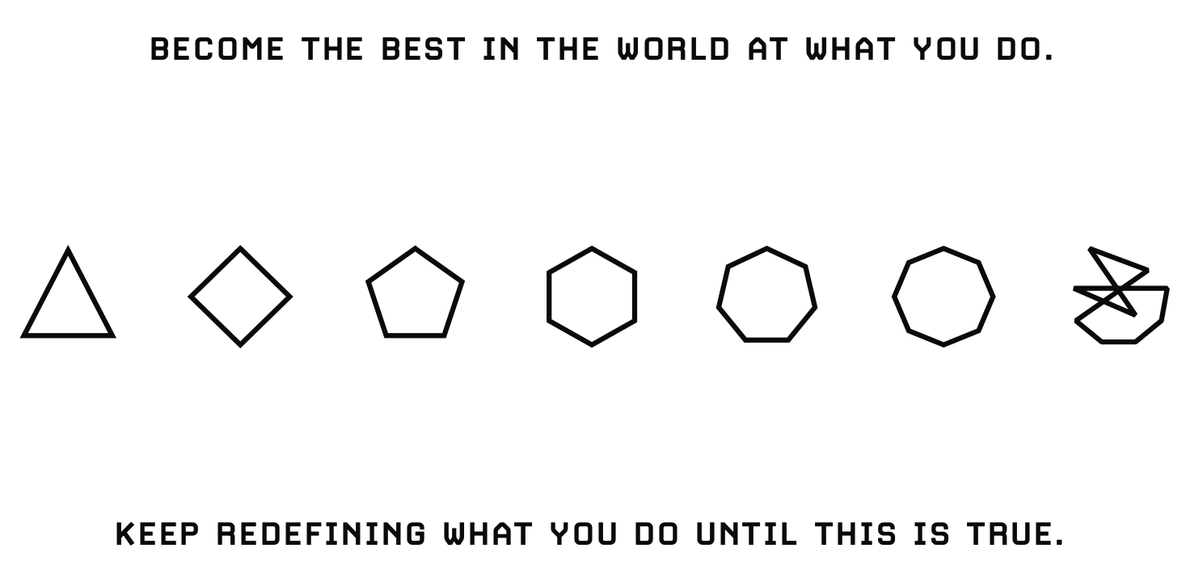
Find and Build Specific Knowledge
Specific knowledge cannot be taught, but it can be learned. Think about what you were good, almost effortlessly, at as a kid. Something you wouldn't consider a skill, but other people noticed. Specific knowledge is a combination of your DNA, your upbringing, and your response to it. It's baked into who you are. No one can complete with you on being you.
Specific knowledge is found by pursuing your innate talents, your genuine curiosity, and your passion. It's not taught in school. It's usually on the edge of knowledge, and hard to do. If you don't go all in, someone else will, and they'll outperform you by a lot, because everything compounds.
Everyone is already the best at something – being themselves. If you're fundamentally building something that is an extension of who you are, no one can complete with you on that. If you're competing with someone, it's because you're trying to do the same thing. Be authentic.
The most important skill for getting rich is being a perpetual learner. You have to know how to learn anything you want. You have to be able to learn something very quickly. Foundations are important. It's better to be a 9/10 on foundations than to get super deep into things. Depth is important, you don't have to be an inch deep and a mile wide, but we really only obtain mastery in one or two things in our lives.
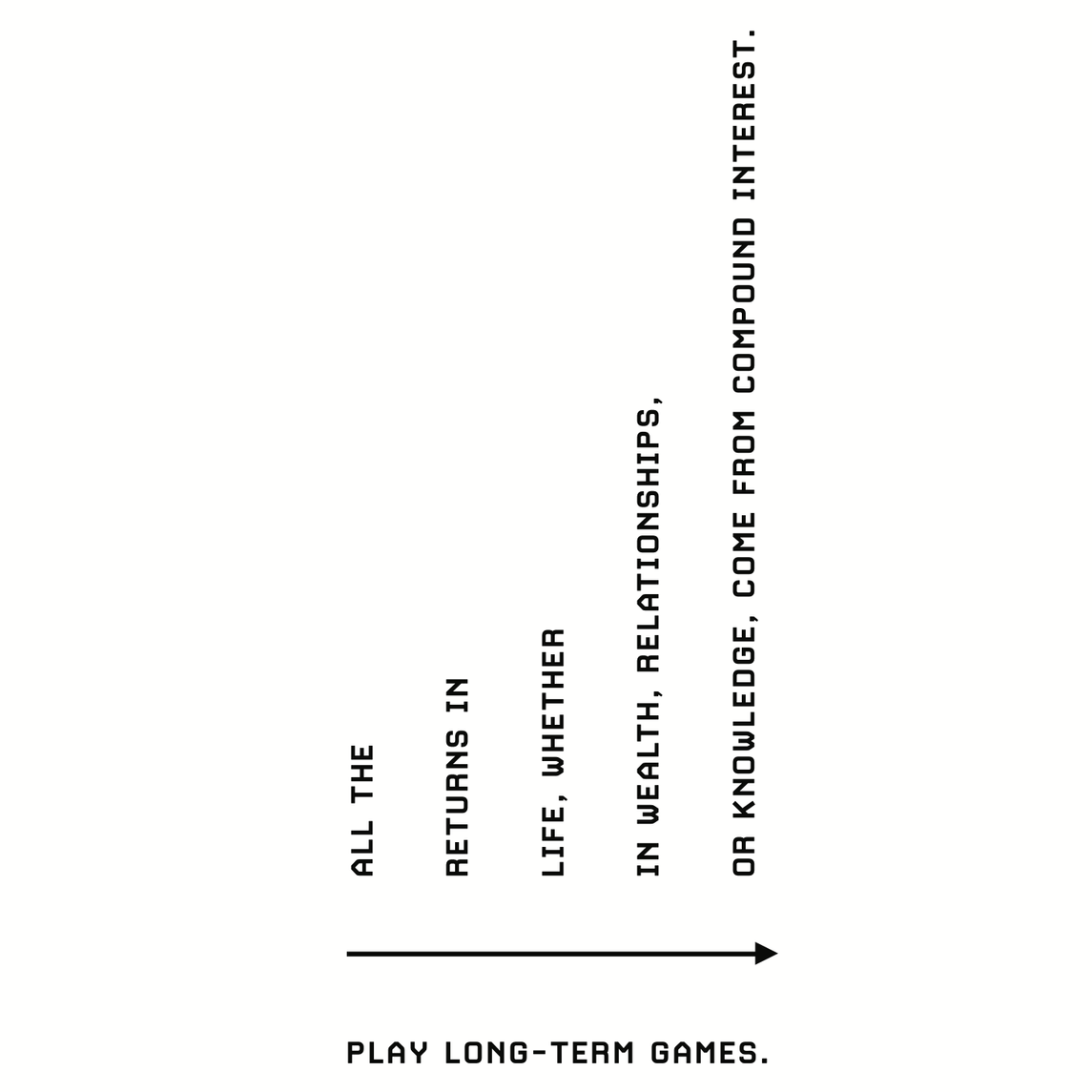
Play Long-Term Games with Long-Term People
Compound interest extends beyond money. In business, compounding builds trust, relationships, reputation, and helps get you to where you want to go. When you find the right thing to do, and the right people to do it with, invest deeply. Sticking to it for decades is how you make the big returns.
With a goal orientated life, only about 1% of our efforts pay off. We forget most of what we learn, or we lose touch with most relationships. We still get learning experiences through our efforts, experience that show us the value of hard work, or provides us with value that became a piece of who are we now. When you find your 1%, go all in and forget the rest.
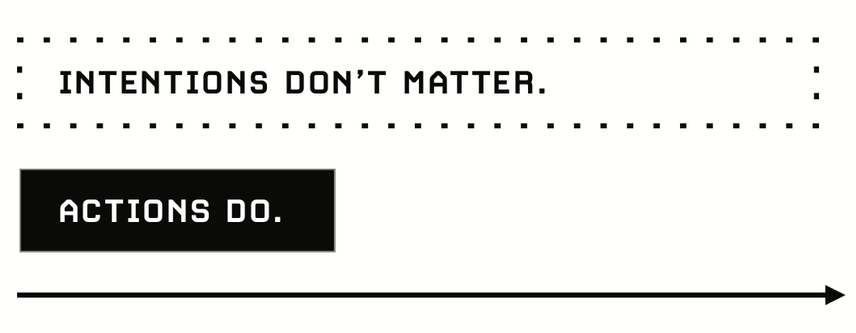
Take On Accountability
You need leverage. Leverage comes in the form of labour, capital, or code/media. Accountability helps you build credibility, which allows you to use leverage.
Accountability used to be severe, the captain needs to go down with the ship. But today, the downside risk of most things isn't that large. As long as you're honest and made a high-integrity effort, most failures are easily forgiven. Don't be afraid to take on accountability.
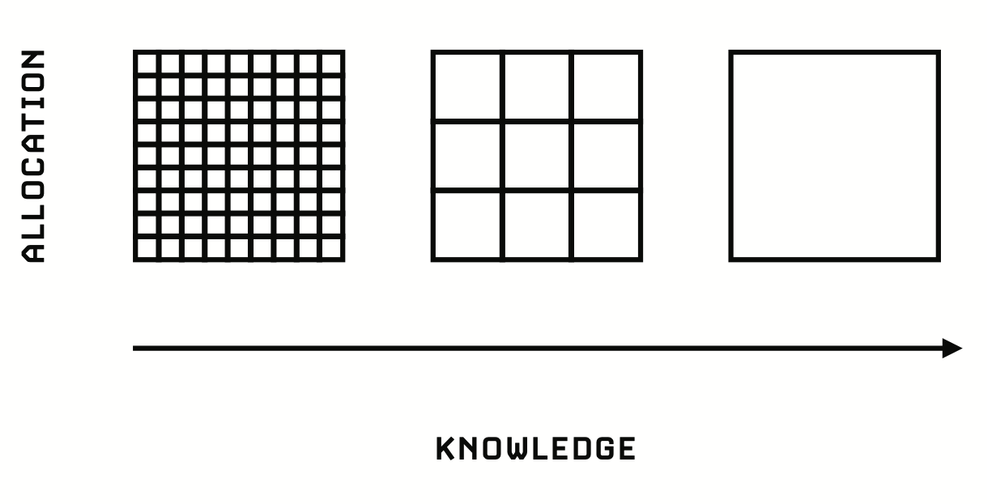
Build or Buy Equity in a Business
Equity represents ownership over work. If you're only paid for your time, it's hard to build wealth. You want passive income, where you're earning while you're sleeping, on vacation, when you're retired. You want to be able to earn nonlinearly.
Real wealth is created by starting companies or investing. Those are the routes to build wealth, it doesn't come through hours.
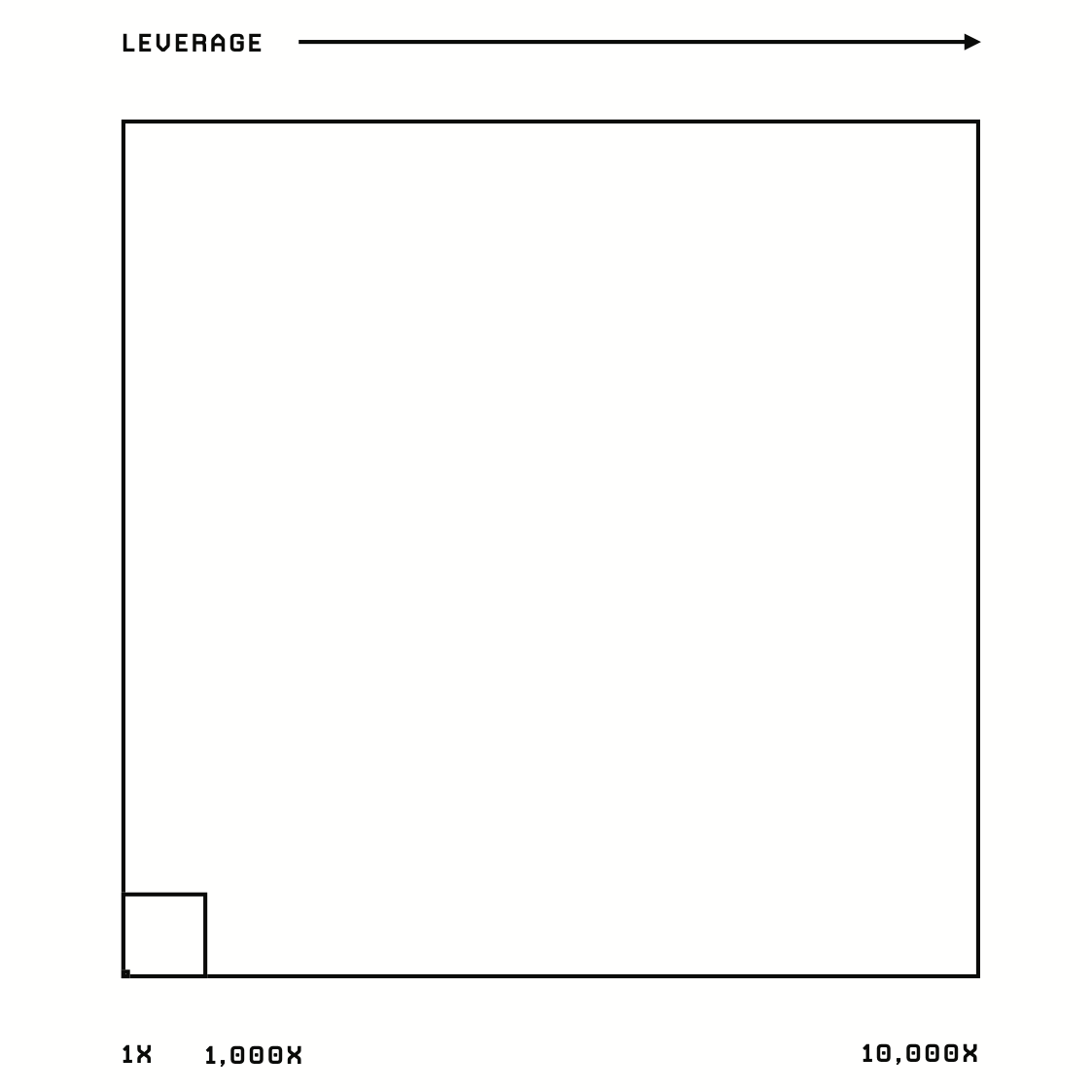
Find a Position of Leverage
We live in an age of infinite leverage. Following your genuine intellectual curiosity is a far better foundation for a career than whatever is making money right now. Knowledge only you, or a small set of people know, will come from your hobbies and passions.
The meaning of life is to do things for their own sake. When you do this, you create your best work. The less you obsess over something, the more naturally you're going to do it, which will be in a way you're good at, so you'll stick with it. Follow your curiosity over what's "hot". If society follows your curiosity, you'll get paid extremely well.
You want to know how to do something other people don't, when it's in demand. In the meantime, build your brand and make a name for yourself. When the opportunity comes, take advantage with the maximum leverage possible.
Labour is the oldest and worst form of leverage – it's difficult to scale, requires a lot from you, carries high risk. Capital is a good form of leverage – scales easily, easier to manage than people. Code/media is the best form of leverage – it requires no marginal cost of replication, it's permissionless, it's how no fortunes are being made.
Forget rich versus poor, white-collar versus blue. It’s now leveraged versus un-leveraged.
Whenever you can, optimize for independence rather than pay. Having independence and being accountable of your outputs, is the dream. Leverage allows you to have a huge impact without as much time or physical effort. Leverage can give you a factor of 10,000x.
What you want in life, is to control your time. Specific knowledge, accountability, and leverage, puts you in a position of being paid what you're worth. You can do what you want, what you need, and focus on what you enjoy.
Leverage creates disconnect between inputs and outputs. Creativity amplifies disconnect. Learn to sell, learn to build. You want to be in a position where you can earn with your mind, not with your time. Don't gamble everything on one go. Take rationally optimistic bets with big upsides.
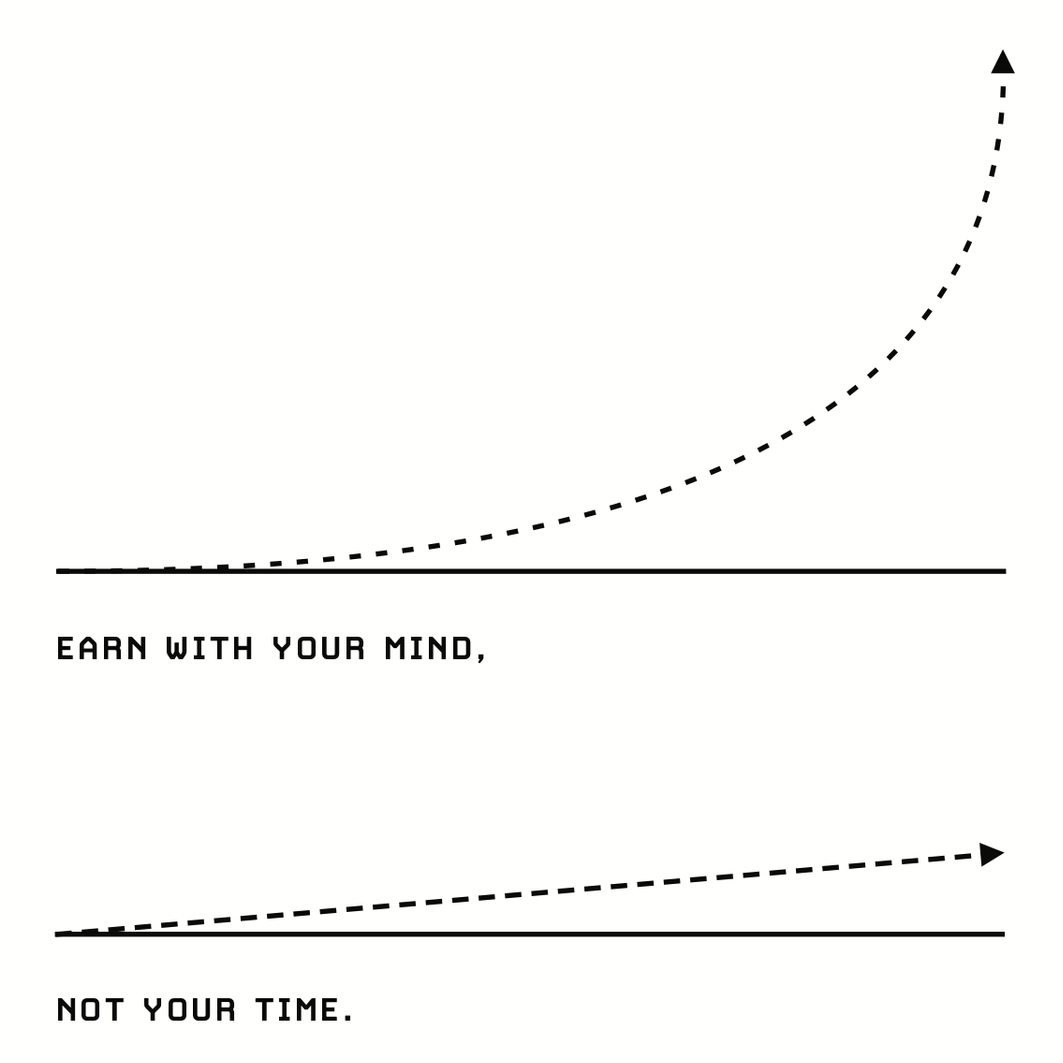
Get Paid for Your Judgement
Aspire to having and being paid for a unique knowledge. Be paid based on your outputs, not on your inputs. Let computers, or robots to do the time consuming work. Small differences in judgement can have dramatic impacts.
Judgement brings you from a position of how hard you work, to the outcomes your work produces. No one cares how hard Warren Buffett works, they just want his results. Leverage magnifies decisions. Being the best at what you do, is very important in the age of leverage.
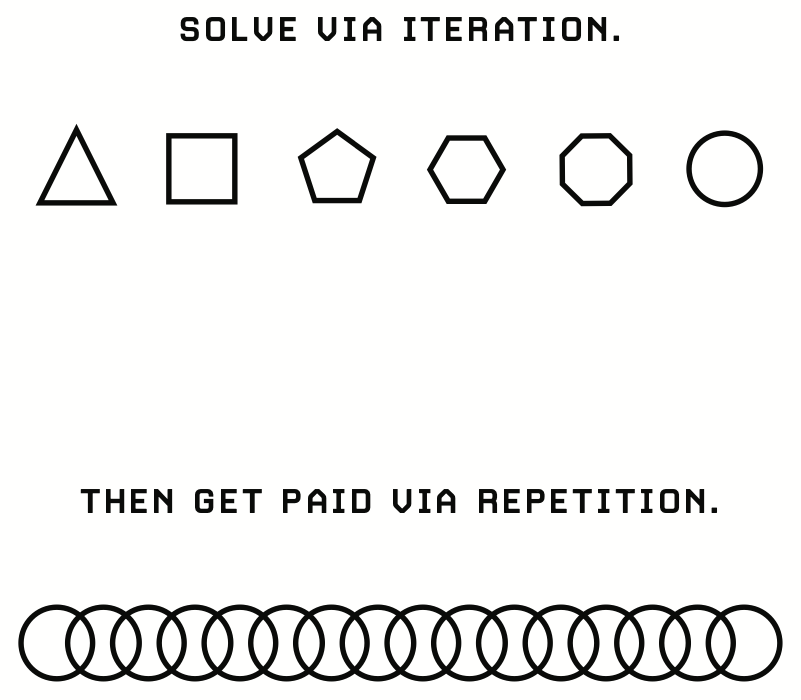
Prioritize and Focus
Wealth is built by consistent opportunities, not one huge pay out. It stacks up little by little, always compounding.
No one values your time more than you value yourself. Factor time into every decision. Set a high hourly rate and don't do things that don't pay it. Either move on, or outsource the work.
If you have a relative mindset, you're going to be comparing yourself to others and creating jealousy. Being anti-wealth will stop you from becoming wealthy. Be optimistic, be positive. Optimists actually do better in the long run.
You either play the money game, or the status game. Status is a zero-sum game: for you to win, someone has to lose. Avoid zero-sum games. Don't create your wealth at the expense of someone else's, play positive-sum games. Play stupid games, win stupid prizes.
Spend more time deciding: where you live, who you're with, and what you do. These three things determine the trajectory of our lives more than anything, and aren't given enough thought. Figure out what you're good at, and help other people with it. You'll attract what you project, but don't measure – you'll run out of patience.
Find Work That Feels Like Play
Be more interested in solving problems than making money. What you really want is freedom. Making money becomes a problem to solve, life is constantly filled with different games that we are playing. Life is about finding games to play that we are good at. Playing all day is a lot more sustainable than working all day.
Retirement is when you stop sacrificing today for an imaginary tomorrow. When today is complete, in and of itself, you're retired.
Money is not the root of all evil, but the lust for money is bad because it's a bottomless pit. It occupies your mind, and it's never enough, the number always moves. The more you have, the more you want. The trick is to not upgrade your lifestyle, so you can be ahead and become financially free. Value freedom above everything else. Money can buy freedom.
How to Get Lucky
In 1,000 parallel universes, you want to be wealthy in 999 of them. You don’t want to be wealthy in the fifty of them where you got lucky, so we want to factor luck out of it.
There are four kinds of luck: blind luck, luck through persistence, being able to spot luck, and having luck find you. You want to create your own luck, by working hard and putting yourself in a position to: earn it, see it, or have it come to you (the best kind). Be deterministic, don't leave it to chance. Build you character so that is becomes your destiny.
Your character and reputation are things you can build. Which can lead to opportunities that people might consider luck, but it isn't – you know the work that went into creating the position.
Be a maker who makes something interesting people want. Show your craft, practice your craft, and the right people will eventually find you.
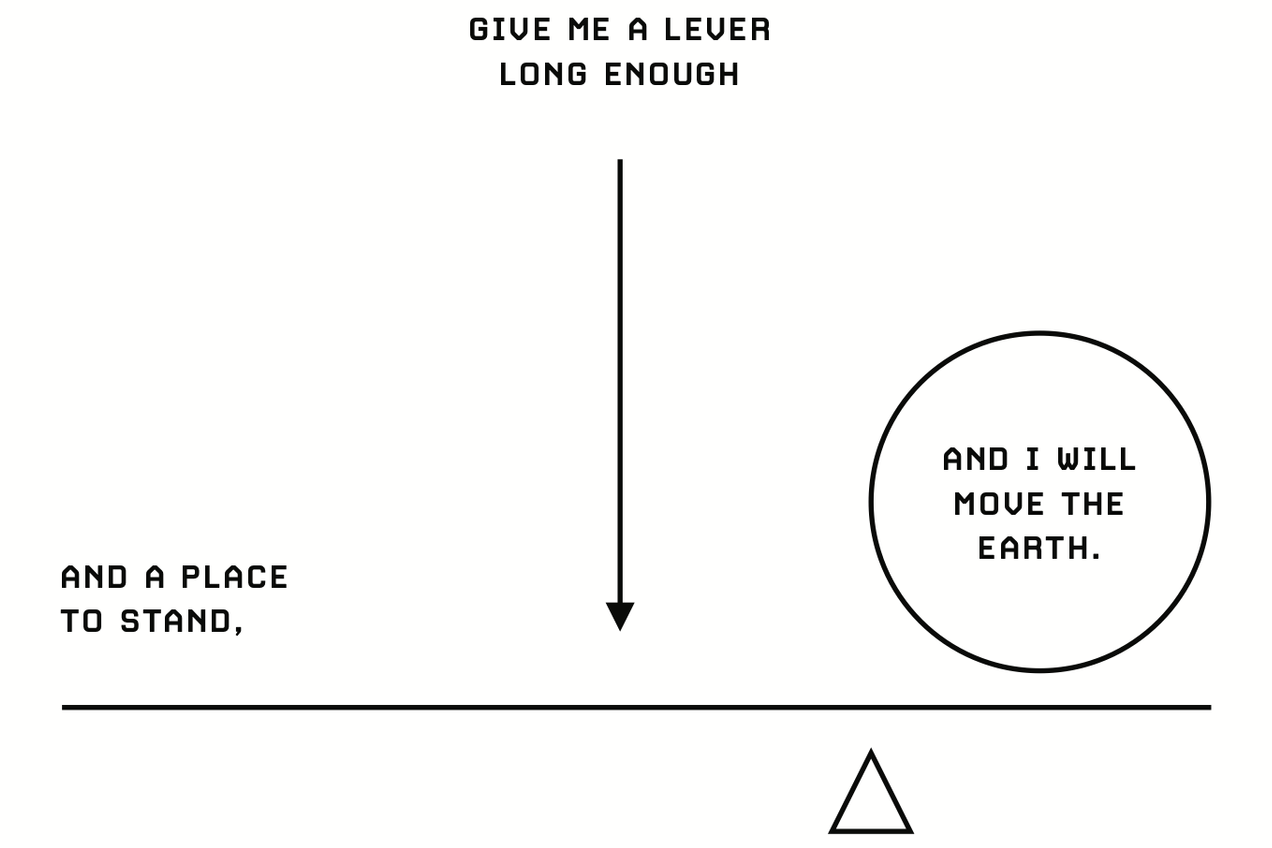
Be Patient
Generally, great people have great outcomes. You have to have patience. Successful never happens in the timescale you want, but it does happen. Don't count the time, you'll run out of patience before success arrives. Immediate doesn't work, you have to put in the time. Enjoy it, and keep doing it. Don't keep track, don't count, if you do you'll run out of time.
It isn't easy. Your real resume is a catalog of your suffering. But anything given is taken for granted. Struggle, it's hard, and it's worth it. Money doesn't buy happiness, but it can buy freedom. Freedom is the time and energy to pursue your own internal peace and happiness. The solution to being happy, is to have what you really want. Get rich, get fit and healthy, then get happy.
Amazing how many people confuse wealth and wisdom.
Building Judgement
There’s no shortcut to smart.
Judgement
Get rich in a deterministically predictable way. Study tech, design and art, be really good at something. Judgement is underrated, hard work is overrated. Judgement is the ability to make the right decisions while knowing the long-term consequences of your actions.
You don’t get rich by spending your time to save money. You get rich by saving your time to make money.
The direction you head in matters more than how fast you move, especially with leverage. Direction matters more than force. Pick your direction, start walking.
How to Think Clearly
Being a clear thinker is better than being smart. Smart people can explain things to a child, by making complex concepts simple to understand. Smart thinkers are clear thinkers, they understand the fundamentals. It's much more important to understand the fundamentals, than it is to memorize complicated concepts.
Our preconceived notions of how something should be, stops us from seeing its reality. You can only make progress when you start with the truth, which is the hard thing to see. You have to let go of your ego. The more we want something to be true, the harder it is to see if it's true.
What we wish to be true clouds our perception of what is true. Suffering is the moment when we can no longer deny reality.
Have empty space in your calendar. When you're not busy, and not stressed, you'll have time to think. Boredom allows you to have great ideas.
Very smart people tend to be weird since they insist on thinking everything through for themselves.
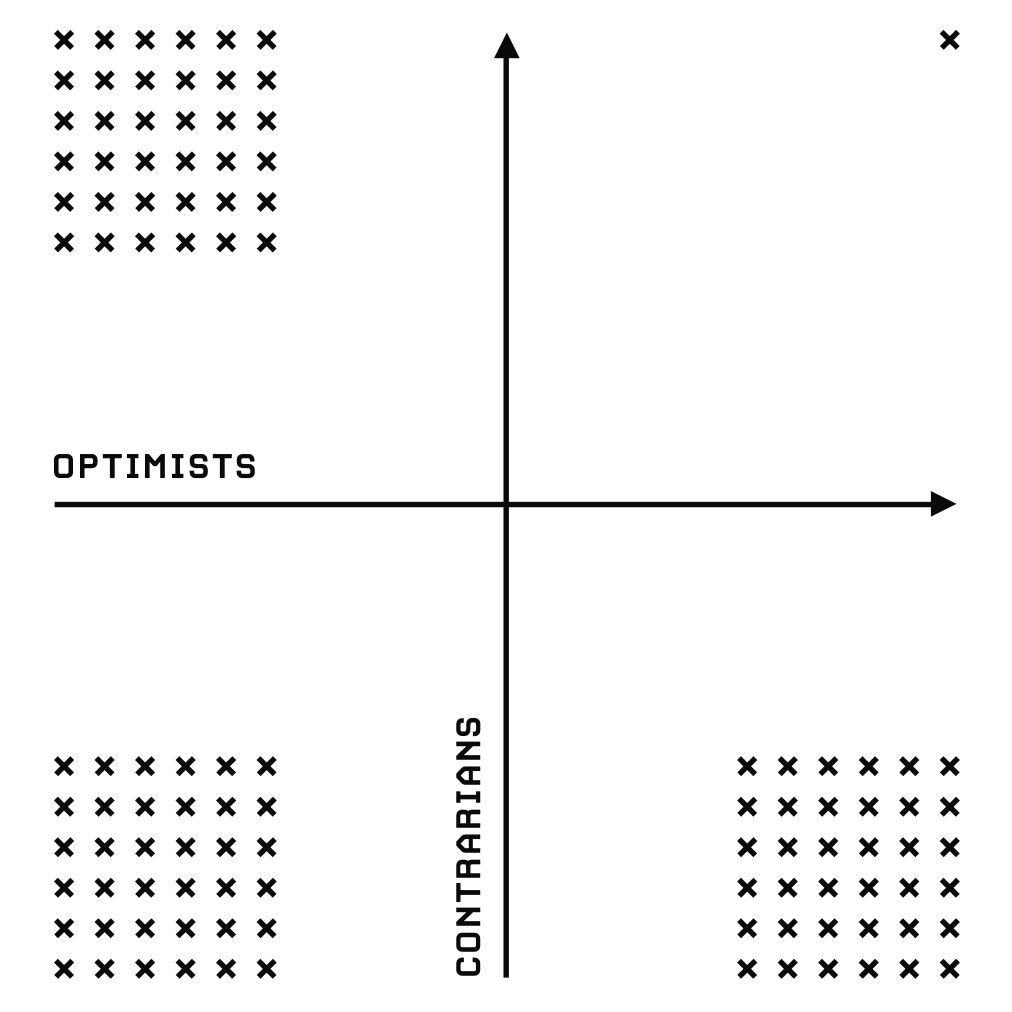
Shed Your Identity to See Reality
Our egos are constructed in our first two decades, by our environment, parents, and society. Ask yourself if your habits attached to your ego: still serve you, make you happier, make you healthier, are apart of your identity, help you accomplish what you set out to accomplish.
To be honest, speak without identity.
There are two attractive lessons about suffering in the long term: it can make you accept the world as it is, and it can make your ego change in an extremely hard way.
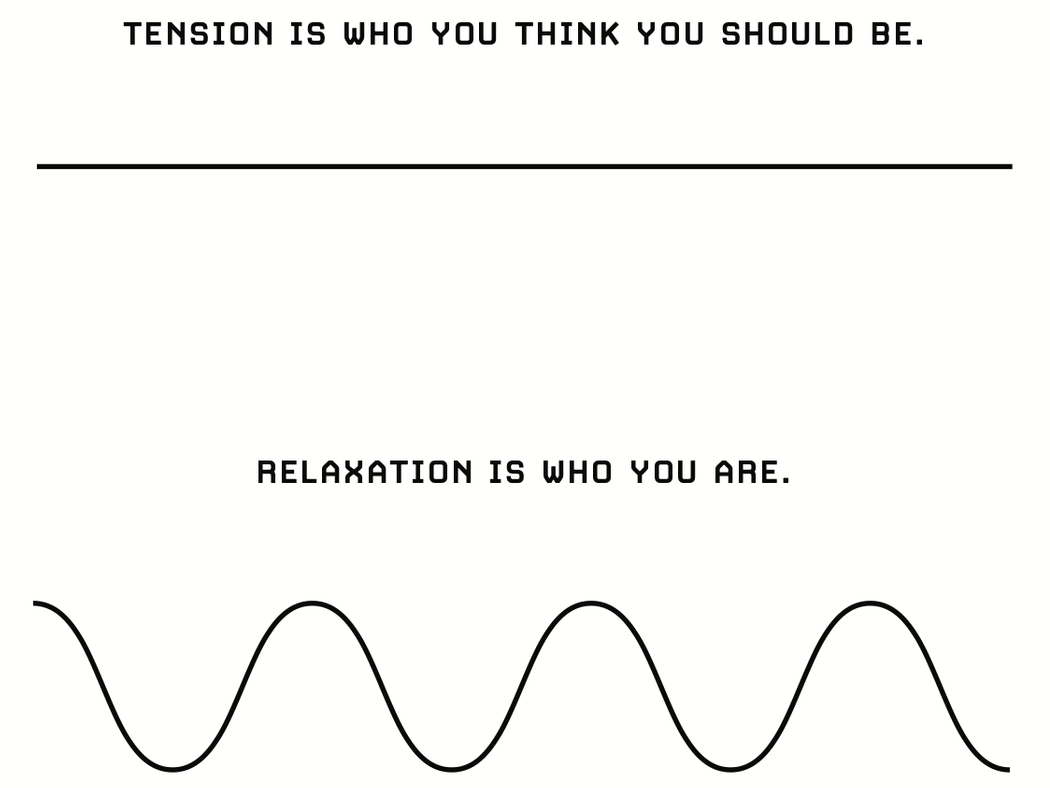
Learn the Skills of Decision-Making
Make decisions that optimize the long term rather than the short term. Make decisions in an unbiased mindset, free of judgement. Be radically honest, when you lie or try to fool someone, you're lying and fooling yourself. Praise specifically, and criticize generally – this will help you get egos to work with you, not against you.
With leverage, being more right and more rational, will give you nonlinear returns. Small differences in decision making will compound overtime, resulting in huge differences.
Collect Mental Models
During decision-making, the brain is a memory prediction machine. It's better to have principles and mental models, that help you come to a conclusion, than make a decision based on a specific memory.
Mental models you can use are: Evolution, Inversion, Complexity Theory, Economics, Principal-Agent Problem, Compound Interest, Basic Math, Black Swans, Calculus, Falsifiability, or Run Uphill.
If you can't decide, then the answer is no. The world is filled with possibilities. The decisions you want to go for, are the ones you know right away. If you have two choices, go with the more difficult one. Short term pain will have long term gain. The best way to build mental models, is to read and learn, a lot.
Reading science, math, and philosophy one hour per day will likely put you at the upper echelon of human success within seven years.
Learn to Love to Read
Learning is abundant, the desire to learn is scarce. Read what you love until you love to read. Make reading an actual habit that you can stick to. It doesn't really matter what you read, just as long as you do. Eventually it'll dramatically improve your life.
“As long as I have a book in my hand, I don’t feel like I’m wasting time.” — Charlie Munger
Read and reread books, especially if they're tough to understand. Learning is like working out, in the short term it might hurt a little. Once you establish a knowledge foundation, it's easy to build upon it. Your foundation needs to be very high quality. Start with the classics that newer material build from. Understand concepts until you can teach them, know them, don't memorize them.
🙂 PART II: HAPPINESS
The three big ones in life are wealth, health, and happiness. We pursue them in that order, but their importance is reverse.
LEARNING HAPPINESS
Don’t take yourself so seriously. You’re just a monkey with a plan.
Happiness is Learned
Money plays a smart part in the happiness equation. A big part of the equation, is learning what happiness means to you. Happiness is the default state, it's there when you remove the sense of missing in your life, it's the state when nothing is missing in your life. It's the absence of desire, especially of external things.
Nature has no concept of happiness or unhappiness. Everything is perfect exactly the way it is. Only in our minds, is there happiness or unhappiness, perfection or imperfection, all based on what we desire. The world reflects just reflects your own feelings back to you. Reality has no judgements. How we interpret the world, is your own choice. Happiness is a choice.
Happiness also depends on how you see yourself, what expectations you set for yourself. If you set no expectation for how it "should" be, and accept it for what it is, there's no reason to be happy or unhappy. This lets you be immersed in your environment and in the moment, for everything it is, and nothing it shouldn't be. It's our own responsibility to make sure we're happy, and interpreting everything in the best possible way.
We think of ourselves as fixed and the world as malleable, but it’s really we who are malleable and the world is largely fixed.
Real happiness is a side-effect of peace, it comes from acceptance, not from changing your external environment. You can improve your happiness, just like anything else.
Happiness is a Choice
Happiness, love, and passion...aren’t things you find—they’re choices you make.
Happiness is a choice and a skill you develop. The mind is as malleable as the body. We spend time and effort trying to change the external, while accepting ourselves just the way we are.
We accept the voice in our head as the source of all truth. But all of it is malleable, and every day is new. Memory and identity are burdens from the past preventing us from living freely in the present.
Happiness Requires Presence
We are rarely in the present, either focused on the past or the future. We can destroy our happiness if we spend all of our time thinking about delusions of the future. We create unhappiness by comparing the past to the present. Enlightenment is the space between your thoughts.
What if this life is the paradise we were promised, and we’re just squandering it?
Happiness Requires Peace
Happiness requires peace, instead of purpose. Purpose can create anxiety, always focused on the next thing. You want peace. You want to be able to sit, and do nothing at all.
A happy person isn’t someone who’s happy all the time. It’s someone who effortlessly interprets events in such a way that they don’t lose their innate peace.
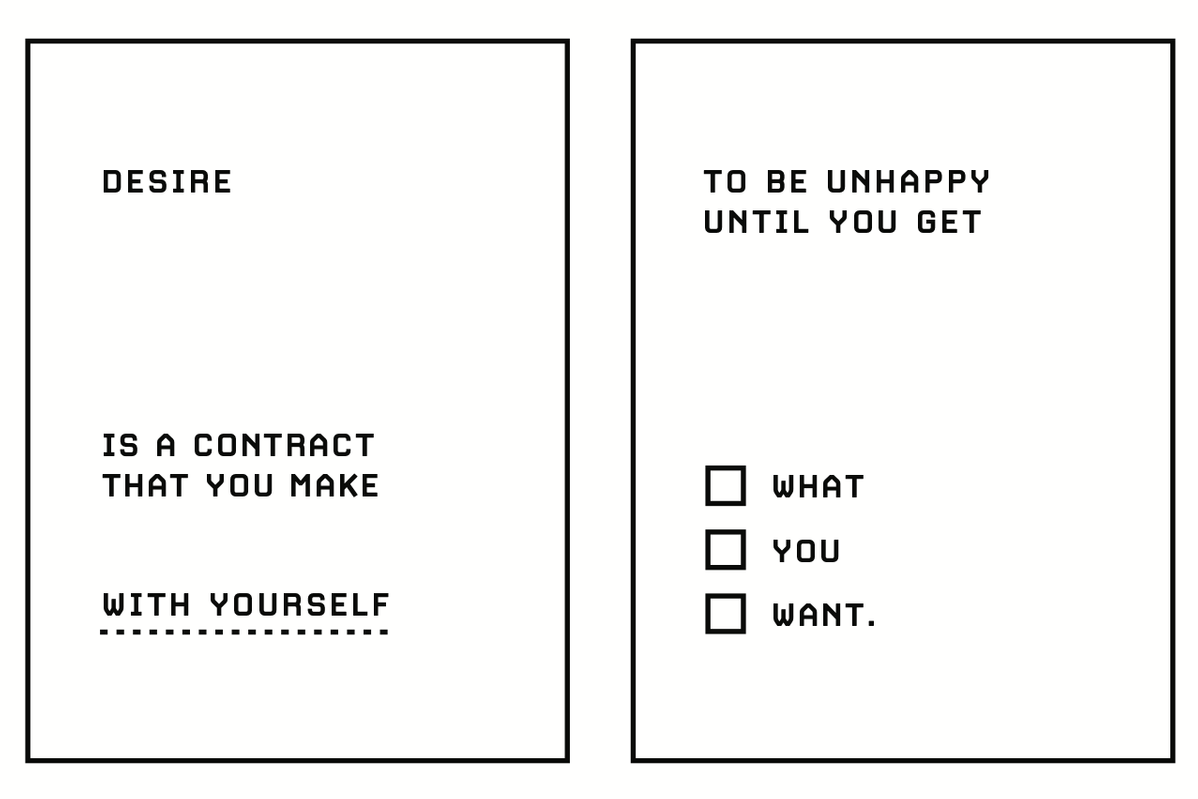
Every Desire is a Chosen Unhappiness
We're addicted to desire, by the delusion that an external thing will bring us happiness. We make the fundamental mistake that "I'll be happy when ___", over and over again.
The fundamental delusion: There is something out there that will make me happy and fulfilled forever.
Desire is making yourself unhappy until you get what you want. We desire all day, and wonder why we're unhappy. Perfect your desires rather than do something you don't really want. Doing more, creates more desire, which creates more unhappiness, over things we don't really want.
Success Does Not Earn Happiness
Happiness is internal. Work on your internal self, external circumstances has little to do with success. Being peaceful inside and out, will result in happiness. Don't try to find peace, by starting a war. Peace is always changing, learn how to flow with and accept life for what it is.
You can get almost anything you want out of life, as long as it’s one thing and you want it far more than anything else.
Peace is happiness at rest, and happiness is peace in motion. Peace isn't found by resolving your external problems, it's found internally by giving up the idea of problems.
Envy is the Enemy of Happiness
We play life as though it's a multiplayer game, listening and comparing ourselves to other people. Doing because of external reasons is hard, doing because of internal reasons is easy. Compete against yourself, play a single-player game.
The enemy of peace of mind is expectations drilled into you by society and other people.
Real scorecards are internal. Jealousy is a poisonous emotion, it doesn't make you better off, only worse. You may be jealous of an aspect of someone or their life, but you wouldn't really give up everything you are to be them, for not only the good but all of the bad. Don't be anyone else, be you. You're in full control of being happy being you.
Happiness is Built by Habits
You can increase your happiness, simply by believing that you can. Happiness is a skill you can learn, when you focus on it things get better. Happiness is found by trial and error, and believing that you will find it. It's all internal, if you believe it's impossible, it becomes possible.
When working, surround yourself with people more successful than you. When playing, surround yourself with people happier than you.
You're a combination of your habits, and the people you spend the most time with. Replace thoughtless habits with good ones, commit to being a happier person. Choose long-term happiness over short-term happiness, positive people that you admire and respect but don't envy.
Be present and realize how many gifts and how much abundance is around you at all times. Decide that happiness is important to you. Start working on it. Prioritize it everyday.
First, you know it. Then, you understand it. Then, you can explain it. Then, you can feel it. Finally, you are it.
Find Happiness in Acceptance
You always have three choices: change it, accept it, or leave it. Don't simply "wish" for either of them, take responsibility in making a choice. Change is a desire, only have one big desire at a time. Accepting is being okay with whatever the outcome is, whether we believe it, things happen for the best.
We are all here for such a small amount of time. Being unhappy isn't doing anyone any favours, no one benefits from it. In the end, none of this is going to matter. The best thing we can do is enjoy yourself, do something positive, project some love, make someone happy, laugh a little, appreciate the moment, and do your work.
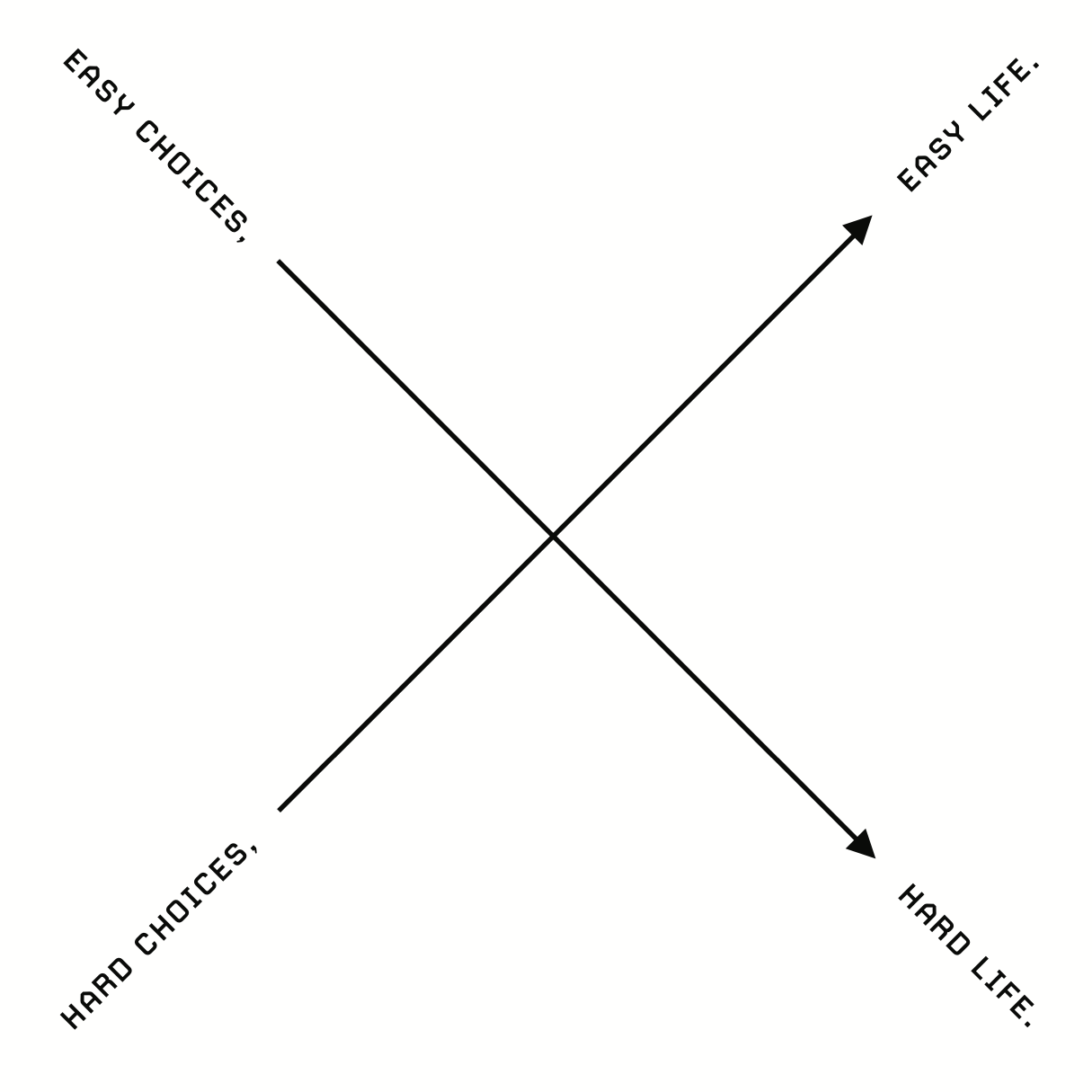
Saving Yourself
Doctors won’t make you healthy.
Nutritionists won’t make you slim.
Teachers won’t make you smart.
Gurus won’t make you calm.
Mentors won’t make you rich.
Trainers won’t make you fit.
Ultimately, you have to take responsibility.
Save yourself.
Choosing to be Yourself
Stop trying to do things the way that everyone else does, do things according to you. Be you. Listen and absorb, but don't emulate. No one can beat you at being you.
I never met my greatest mentor. I wanted so much to be like him. But his message was the opposite: Be yourself, with passionate intensity.
Your goal in life is to find what needs you the most, there's something out just for you. Don't do what other people are doing, you'll never beat them at being someone else.
To make an original contribution, you have to be irrationally obsessed with something.
Choosing to Care for Yourself
Your number one priority, above all else, is your health, in this order: physical health, mental health, spiritual health, family's health, family's wellbeing. If those are good, go after whatever you need to do for the rest of the world.
Nothing like a health problem to turn up the contrast dial for the rest of life.
We evolved for scarcity but live in abundance. There's a constant struggle to say no when our bodies want to say yes. We don't know how to say no. With medicine and nutrition, subtract before you add.
When you say "I don't have time", you're really saying "It's not a priority". Whatever is important to you, make it your #1 priority, then you'll have no excuse. Short term sacrifice equals long term benefit.
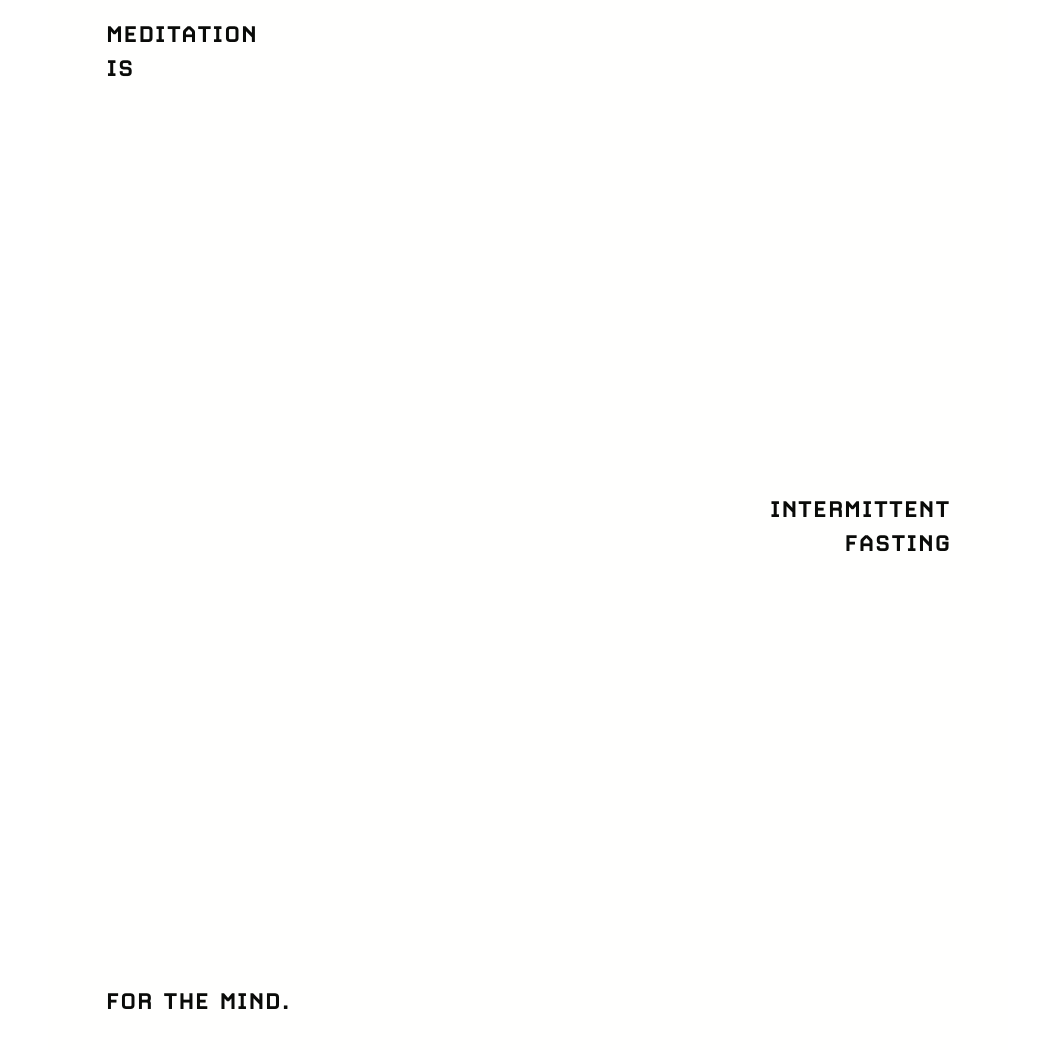
Mediation + Mental Strength
Most of our suffering comes from avoidance. Instead of mentally suffering over it, accept it, deal with it, embrace it.
Meditation comes in many forms, and can be as simple as choosing not to judge anyone, instead just accept everything for what it is. Or simply being still with your eyes closed. Listen to your thoughts, understand where they are coming from, quiet your mind.
Life-hack: When in bed, meditate. Either you will have a deep meditation or fall asleep. Victory either way.
We use substance and experience to influence our mind. Using alcohol to not care, weed to zone out, adrenaline to get a rush. Yet we assume our minds are uncontrollable. Gaining awareness of how you think, and how your mind works, can allow you to have more control over it. Your mind is a muscle, it can be trained and conditioned.
Choosing to Build Yourself
The greatest superpower is the ability to change yourself.
How our life plays out, positive or negative, is up to how we interpret it. Emotions can play a bigger role than they need to in situations, avoid getting angry over unfortunate situations, focus on the facts and stay level headed.
Life is about constantly building good habits and trying to rid yourself of bad ones. We are our habits. Instead of saying "I'm going to do this, I'm going to be that" just do it. Saying you're going to, is putting it off, giving yourself an out, making an excuse. If you really want to change, just change.
Impatience with actions, patience with results.
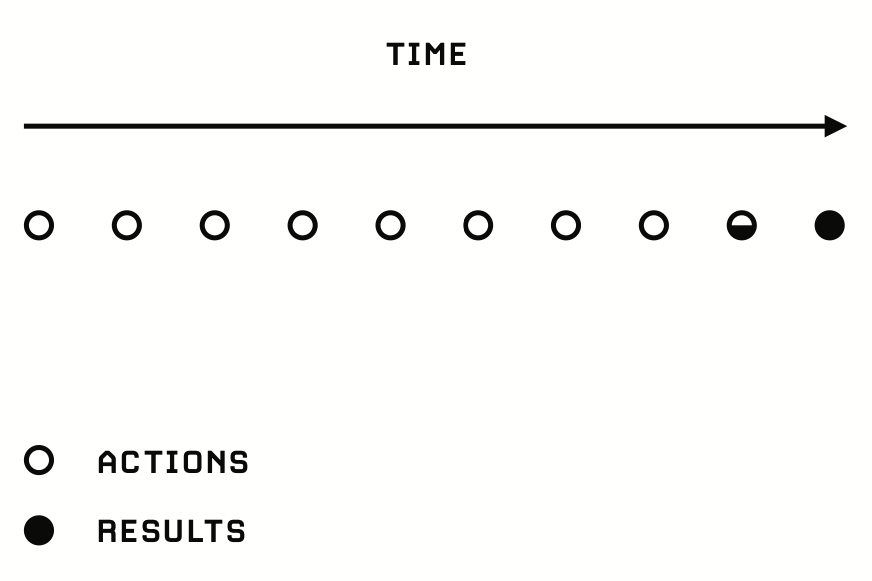
Choosing to Grow Yourself
Set systems, not goals. Figure out what environment you can thrive in, and create that environment around you so that you're likely to succeed. A good system will lead to success almost every single time.
Read and learn what you're genuinely interested in, not just what society tells you to. Read for its own sake, develop a love for it. Follow your curiosity, understand the basics, it's much more likely to help you find a winning path.
Grind and sweat, toil and bleed, face the abyss. It’s all part of becoming an overnight success.
Choosing to Free Yourself
Everyone is making it up as they go. You have to find your own path, figure it out and do it. Along the way, you want to find "freedom from": expectations, employment, reaction, anger, being sad, forced to do things, uncontrolled thinking.
Value your time, it's all you have, so don't waste it. Spend your time in meaningful ways to you, whatever that looks like. Focus on yourself, being happy will make other people happy. Self awareness and self discovery is a lifelong process, there's no end point. There's no meaningful answer, nothing to be solved. It's important to understand your place in the big picture.
The modern struggle:
Lone individuals summoning inhuman willpower, fasting, meditating, and exercising...
Up against armies of scientists and statisticians weaponizing abundant food, screens, and medicine into junk food, clickbait news, infinite porn, endless games, and addictive drugs.
Philosophy
The real truths are heresies. They cannot be spoken. Only discovered, whispered, and perhaps read.
The Meaning of Life
It's a big questions, so there's three answers:
- It's personal – you have to find your own meaning.
- There is no meaning to life – in the grand scheme, our time is insignificant.
- A means to an end – we're all headed towards the end of the universe.
Live by Your Values
Always be honest. All benefits in life come from compound interest, compounding takes time so work on things that have long term payout. Treat everyone like a peer, no one is above or below anyone. Let go of anger, it does no one any good.
Discovering and living by your values will help you be the person you want to be most. It will help attract people with similar values to you, it will bring people closer together.
Rational Buddhism
The older the question, the older the answers.
Rational Buddhism means reconciling with science and evolution. Taking beliefs that you can verify for yourself, but not having to take it all if it doesn't make sense to you. Try everything, test it, be skeptical, keep what's useful, discard the rest. It's about finding what works for you.
Wisdom is understanding the long term consequences of your actions.
If wisdom could be imparted through words alone, we’d all be done here.
The Present is All We Have
The only thing that exists is this exact point where you are in space at the exact time you happen to be here. A moment is perfectly unique, and slips away before we can grab it.
You're drying and being reborn at every moment, it's up to you to either remember or forget that.
“Everything is more beautiful because we’re doomed. You will never be lovelier than you are now, and we will never be here again." — Homer, The Iliad

🧠 Final Thoughts
This is a book, that could never get recommended enough. It's a book on finance, happiness, life, philosophy, and self help, but is unlikely to rank at the top of any of those categories for a lot of people. Despite that, it might be the single most influential book on all of those categories. It's a book you could read a hundred times, and find new meaning with each read.
Naval is an incredible thinker, you could easily look at what he's accomplished from a business perspective to arrive at that conclusion. But what's even more impressive, is his unique perspective to life. His range of insight seems to cover everything from a Buddhist Monk to Elon Musk.
A single Twitter post can be the inspiration you need to accomplish everything you want in business. Or it could be the meaning you needed to hear to reprioritize and live a more purposeful life. Any single sentence could be the exact sentence you need.
It's hard to summarize because it's already a summary of Naval's thoughts and ideas. That's why I say there's value in every word, and summarizing it might be an injustice. There's a chance that what I left out, is as valuable as what I included. If anything in here designated with you, reading The Almanack of Naval Ravikant, might change your life.
❤️ Liked This? Check These Out
The Anthology of Balaji by Eric Jorgenson, a guide to technology, truth, and building the future
The Psychology of Money by Morgan Housel, timeless lessons of wealth, greed, and happiness
Principles (Life & Work) by Ray Dalio
All ideas, quotes, and illustrations are borrowed or based on The Almanack of Naval Ravikant by Eric Jorgenson. To learn more, visit www.ejorgenson.com.





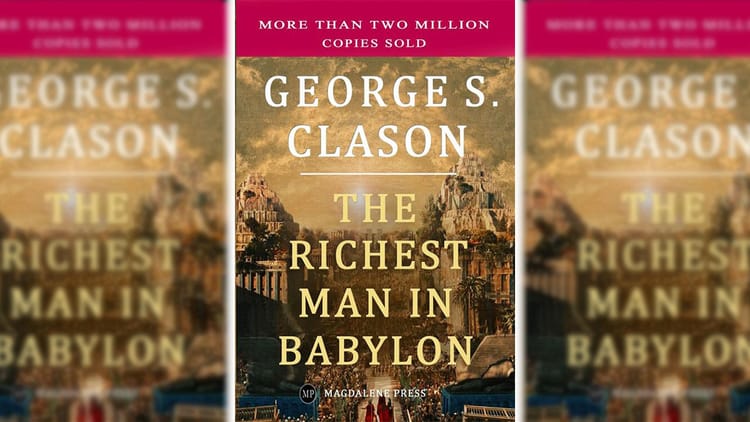
Member discussion